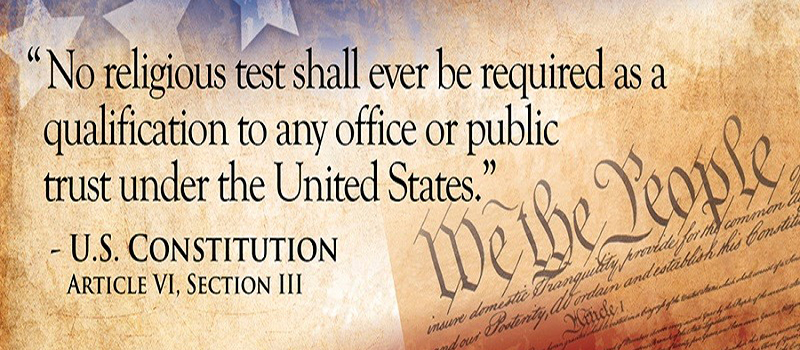Kerby Anderson
Should US senators be allowed to apply a religious test to anyone nominated to serve in the government?
Earlier this month, two Democrats in the Senate, Mazie Hirono (HI) and Kamala Harris from (CA), objected to the nominee to a US district court because of his membership in the Knights of Columbus, a Catholic fraternal organization. One senator wanted to know if he was aware of their stand on abortion. Of course he was. The senator also wanted to know if he would recuse himself from various court decisions.
Senator Ben Sasse (NE) introduced a “sense of the Senate” resolution saying that consideration of the membership of the Knights of Columbus was a violation of the prohibition against religious tests. It passed unanimously suggesting that Senator Hirono essentially voted against her own conduct in the hearings.
Other senators have also been asking religious questions in other hearings. Last year Senator Diane Feinstein (CA) wanted to know if a nominee to the circuit court worked with his parish to establish a crisis-pregnancy center. The senator also received lots of media attention for her statement to circuit court judge Amy Coney Barrett that, “The dogma lives loudly within you.” That comment, in particular, was seen by many as a violation of the Article VI of the Constitution that prohibits a religious test for office.
By the way, Catholics aren’t the only religious groups being singled out. Senator Bernie Sanders (VT) clashed with a nominee to the Office of Management and Budget because of something he wrote about Islam in a blog post tied to Wheaton College. Senator Sheldon Whitehouse (RI) challenged a nominee because his Anglican pastor opposed same-sex marriage.
All of these examples illustrate how many Democratic senators are feeling more and more comfortable in applying religious tests to nominees even if that is prohibited by the Constitution.
 Listen Online
Listen Online Watch Online
Watch Online Find a Station in Your Area
Find a Station in Your Area












 Listen Now
Listen Now Watch Online
Watch Online
